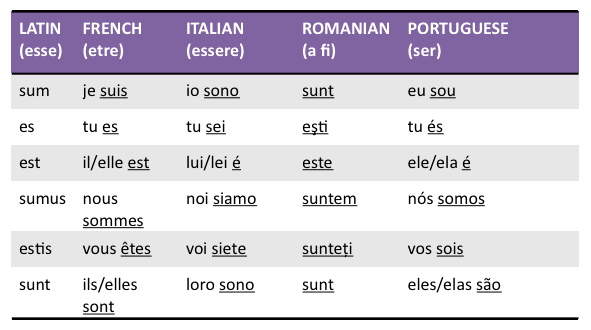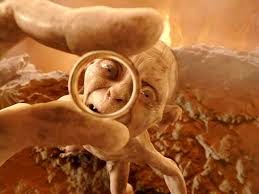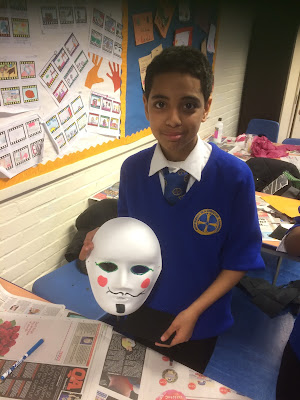 |
| Latin in your pocket |
Our mission in Classics Club today? To realise just how much Latin we already know. We're surrounded by Classical influence, from the coins in our pocket to the words that we speak. We emptied out our pockets in search of a particular kind of pound coin, one that read around its rim:
DECUS ET TUTAMEN
We found several! This inscription means 'beauty and security' (i.e. what money is supposed to be). And what language is this in? Latin! We weren't lucky enough to find:
NEMO ME IMPUNE LACESSIT (nobody may provoke me and get away with it - motto of the kings of Scotland)... also Latin.
 |
| Language evolves... |
We did, though, find the Welsh pound coin which Devon bravely read out loud:
PLEIDIOL WYF I'M GWLAD (I am faithful to my country)
We then moved on to an exploration of the English language, to show just how much Latin we already know in the form of modern words that have their roots in the ancient language. Students flew through the task of matching familiar English words to their etymological ancestors.
We also explored the notion of language as an organic entity that is constantly changing, from the transition of Latin into French, and then the imposition by the Normans of their language on the English from 1066 A.D. onwards. And, of course, more l8ly, the impact of technology changing language 4eva.
Making a bold start in our Latin language work, learning the first and most important rule of Latin: it's not the word order that's important, but the word ending. Then, using this rule, and looking at two model Latin sentences, the class showed its amazing code-cracking skills to work out that 'a' shows that a noun is the subject of a sentence, and that 'am' shows that a noun is the object.
 |
| Mus musculus |
Finally, we turned our attention to another way in which Latin lives on in modern times: scientific categorisation. We just about had time to have a go ourselves at sorting a diverse bunch of objects/creatures/plants into categories, just to prove to ourselves how hard a job it is (How do we group the objects? Size? Colour? Function? Intelligence?). Next week we'll have a look at how Carl Linnaeus tackled this problem, with the help of Latin and Ancient Greek, to create a scientific naming system that is still in use today.
 Then onto things starry, and the VERY IMPORTANT distinction between astronomy (the branch
of science which deals with celestial objects and space) and astrology (the study
of the movements of stars and planets interpreted as
having an influence on humans). Both contain the root 'astro-', which is Ancient Greek for 'star', but the class went on to discuss what the difference is between science and belief. Do you believe that all people born under the sign of Taurus are stubborn? Are all Virgos perfectionists?
Then onto things starry, and the VERY IMPORTANT distinction between astronomy (the branch
of science which deals with celestial objects and space) and astrology (the study
of the movements of stars and planets interpreted as
having an influence on humans). Both contain the root 'astro-', which is Ancient Greek for 'star', but the class went on to discuss what the difference is between science and belief. Do you believe that all people born under the sign of Taurus are stubborn? Are all Virgos perfectionists? 














































